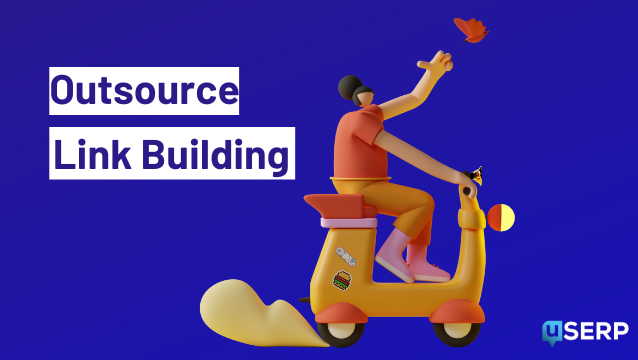When you hear the term link farming, what comes to mind?
If your thoughts are: “bots leaving a comment on everything they read?” Or “I smell spam,” then don’t worry. No one else is thinking those things either. Link Farming has ruined many an SEO campaign! It’s not something we should be proud of as marketers or bloggers.
So why do so many people still engage in this practice? Let’s take a closer look.
What Are The 12 Reasons Why You Should Avoid Link Farming
There are several reasons why you should avoid link farming, including the following:
1. Link farming can get your site penalized.
Link farming can penalize your website because it artificially increases the number of links pointing to a website. Google views link farming as an attempt to unethically improve a website’s ranking.
The purpose of link farms is to sell links, which violates search engine guidelines. If your website is participating in a link farm, your site could be subject to manual action from Google. Your site would get penalized, lose rankings, or even be removed from Google’s search results.
Finally, link farms are generally low-quality websites that provide little value to users. You risk harming your website’s reputation and giving visitors a bad experience by linking to a link farm.
2. Link farming can lead to low-quality links.
Link farming can lead to low-quality links because it focuses on quantity over quality. It means that link farmers are more interested in building many links, regardless of the links’ quality or the content they are linking to.
The practice of linking out pages to gain backlinks to a website is frowned upon by Google and can lead to penalization. As a result, avoiding link farming is essential if you want your website to rank high on search engines.
In short, link farming can lead to low-quality links, which will not impact your SEO. These links may even be seen as manipulative by Google and could get you penalized.
3. Link farming is not very effective for link building.
Link farming is an old and ineffective technique that can do more harm than good. Google has become much better at detecting spammy links, and if your site is connected to a link farm, you risk being penalized by Google. Additionally, bad backlinks from link farming can hurt your site’s ranking.
In short, link farming is an ineffective way to build links and can lead to a loss in rankings. This happens because Google penalizes websites for using link farms. As a result, SEOs must take the time to rebuild their link profiles using different methods.
4. Links from link farming could be spam links.
Link farming is creating links to a website to increase its ranking in search engine results pages. This technique has come under fire in recent years because it creates unnatural links, which Google can detect and penalize. As a result, using link farms can hurt your website’s ranking instead of helping it.
Google is getting better and better at detecting techniques used to manipulate its algorithm, including using Link Farms. Google can identify a link from a Link Farm by analyzing the links it receives.
5. Link farming can be a waste of time and money.
Link farming is a technique for creating links to your website to increase traffic. While this might seem like a good idea, it can lead to bad results.
For one thing, link farms can get you penalized by Google. If Google suspects that you’re using link farming to manipulate your ranking, they may give you a lower PageRank or even remove your site from their index entirely.
Finally, link farms can be a waste of time and money. If you’re starting a blog and paying someone to create links for you, you’re better off spending that time and money on other marketing efforts that will bring in new customers.
6. Link farming is technically against Google’s TOS.
Link farming, or artificially increasing the number of links a site has, is prohibited by all search engines. Participating in link schemes can lead to a site ranking lower in the SERPs and take a long time to remove.
Link farming is a black-hat SEO technique that inflates the number of links to a website to improve its search engine ranking. This is done by exchanging links with other websites or creating fake websites just for link building. However, Google frowns upon this practice and can penalize your website’s ranking if it detects any evidence of link farming.
7. Link farming could give you a bad reputation.
Link farming is a risky business practice where website owners post links to other websites without real content. This type of behavior can damage your reputation, as people may think you are not credible or trustworthy. Link farming can also harm your website’s search engine ranking, as Google may label your website as a spam site.
Simply put, link farming is the act of posting links to other websites without any real content. This type of behavior can damage your reputation and rankings in search engines. It’s one of the quickest ways to get penalized by Google. So, if you’re looking to improve your website’s SEO, avoid link farming at all costs.
8. Link farming is not a long-term solution.
Link farming may be a shortcut for boosting your website’s ranking, but it is not a sustainable or long-term solution. Link farms are constantly being hit with new Google algorithm updates that make it easier to identify and penalize them.
Additionally, as more and more people catch on to the fact that link farms can be detrimental to their website’s ranking, the link farms themselves become less effective. So while link farming may give you a short-term boost, it’s not worth the risk in the long run.
9. Link farming may ban your site from search engines.
Link farming is the act of creating multiple sites for the sole purpose of artificially boosting the link popularity of a single site. This is generally done by creating low-quality content sites that link back to the main site. Google penalizes sites that engage in link farming, as it is considered a form of spam. This means that your site may be banned from Google if it is engaging in link farming. Therefore, it is important to avoid using this technique when building links to your site.
Here are some other reasons a website may get banned – cloaking, doorway pages, hidden text, redirect pages, duplicate content, etc.
10. Link farming could remove your site from directories.
Link farming is the act of creating links to a website to artificially inflate the site’s search engine ranking. This is considered an unethical SEO practice and can result in your site being removed from directories and search engines.
Difference between a link farm and a web directory:
Link farming is a frowned-upon technique by search engines because it ultimately hurts the user. By definition, a link farm contains links with no set categories and no logical order. The links are usually used to manipulate search engine results pages (SERPs). As a result, websites that engage in link farming can be removed from Google’s index and directories altogether.
A web directory is an online collection of links sorted into relevant topics. For example, if you want to find a plumber in your area, you might go to a plumbing directory. For your website to be included in these directories, it must have a domain authority of at least 40.
11. Link farming could get your other backlinks removed.
In other words, if you’re engaging in link farming practices – or any other black hat SEO tactics for that matter – your site could have other links removed. Other webmasters may take notice of shady backlink building strategies and remove your natural links too.
12. Link farming could lose you potential customers/traffic.
When a company engages in link farming, it pays people to post links to its website or blog on social media. It can damage a website’s reputation, as potential customers may find out and be put off. Link farming can also lead to lost customers, as the quality of the content on the site may suffer.
Additionally, If you do link farming, your website’s traffic and search engine rankings will drop like a rock and cause you to lose traffic. There is no way to appeal a suspected penalty, so avoiding this black hat SEO technique is best.
What is link farming?
Link farming is the creation of links between unrelated websites to increase a site’s ranking. This black hat SEO tactic can negatively affect a website’s search engine optimization. The content on link farms is often low quality and not related to the other sites linking to it, making them easy to detect by search engines. Using Link farms is not recommended as a long-term SEO strategy.
Additionally, A link farm is a website that exists to gather links to other websites. The site owners will often gather many unrelated links to increase the link popularity of their target website. These so-called “link farms” can hurt your SEO efforts and damage your online reputation.
Finally, Link farming is a way to artificially boost the number of links to a website to improve its ranking in search engine results pages (SERPs). However, over the years, Google and other search engines have adapted their algorithms to prevent websites that engage in link farming from appearing at the top of SERPs.
What are some ways to detect link farms?
Detecting a link farm is an important part of maintaining the quality of your website’s backlinks. Several signs can indicate a link farm, including high numbers of unnatural links and suspicious anchor text. Here are a few guides on how to detect link farms:
- Websites that are part of a link farm are usually poorly written and visually unappealing. This is done on purpose so that site owners can generate as many links as possible in a short period.
- One of the easiest ways to detect a link farm is by checking the site’s TLD. If it is a cheap and low-quality TLD, then there is a high chance that the site is being used for link farming.
- One of the ways to detect a link farm is by looking at the number of links to irrelevant websites. If a website has a high number of links to unrelated sites, the site is likely being used for link farming.
- Use the Site Explorer tool in Ahrefs to look for unnatural anchor texts and a high number of link clicks.
- Link farms can be identified by their PageRank and the SEOQuake plugin.
- Link farms have many pages with business names, descriptions, and links.
- A link farm is a collection of links with no set categories or editorial review.
What are some alternative methods to link building?
White hat SEO link-building techniques involve ethical link-building methods.
Guest posting: An effective way to build links and relationships with other website owners. When you reach out to website owners, propose writing a guest post for their blog. Brainstorm a title that will be intriguing and useful to their readers, then write content that lives up to the title. Don’t promote your company or yourself when writing a guest post – focus on providing value for the reader.
Directory Submission: A better way to build links for your website is by submitting them to high-quality business directories that Google has indexed. To determine whether a directory is worth submitting to, you can check its DA (Domain Authority) and PA (Page Authority). Once you’ve verified that the directory is reputable, submit your website. However, be aware that Google’s Penguin Algorithm punishes websites for spammy links, so ensure all of your links are high quality.
Business Listing: Business listings in local directories are a great way to get backlinks and more visibility for your website. There are many local directories to choose from, and it’s free to submit your business details to them. You can also get links from authority websites by guest blogging or contributing content. These methods may take more time and effort than link farming, but they are more likely to be approved by Google and can help improve your website’s SEO.
Microblogging: Twitter, in particular, is a great microblogging platform that you can use to build links. Microblogging allows followers to interact with you quickly and directly. It can include different content formats, such as audio, text, images, or video. This content will help you attract attention and drive traffic to your website.
Skyscraper: A popular link-building technique is the Skyscraper Technique. The idea behind this strategy is to find high-ranking content with lots of backlinks, capitalize on its weaknesses, and develop a much better piece of content. You can then reach out to the people who have linked to the old content and share your new content with them. If you do this correctly, you can get tons of high-quality links for your website.
Is there a tool recommended for link building?
There is a tool highly recommended for link building: Ahrefs. This digital marketing suite offers valuable insights into backlinks and SEO. Its crawling software recreates your site as a search engine sees it so that you can identify any potential issues. Ahrefs offers features like ranking monitoring and keyword tools to help with your SEO efforts.
Link building is an important part of any SEO strategy. However, it’s important to be aware of the risks involved in link building, especially regarding link farming. Ahrefs is a tool that can help you track and monitor your backlink profile. It’s inexpensive and can work well alongside another outreach tool.
What are some Ahrefs alternatives?
There are many alternatives to Ahrefs, some of which are better suited for specific needs. It is important to research different solutions before deciding which to choose. Some factors you may want to consider include each solution’s features and how user-friendly they are. You also need to ensure the tool you choose can help you achieve your SEO goals.
When exploring alternatives to Ahrefs, it’s crucial to delve into options that align with your unique requirements, and for those seeking a comprehensive yet user-friendly solution, exploring Ubersuggest Alternatives is worth considering. Delve into these alternatives to Ubersuggest, examining their strengths and weaknesses to find the one that seamlessly integrates with your SEO strategy and propels your online presence to new heights.
Some of these Ahrefs alternatives:
Semrush: Semrush is an all-in-one SEO tool suite that can help with online visibility and marketing insights. The tools and reports available in Semrush can help marketers with the following services: SEO, PPC, SMM, and more.
SE Ranking: A comprehensive software suite that includes all of the tools needed for successful SEO. The tools included in SE Ranking help increase traffic and rankings, making it a great option for those looking to improve their website’s visibility.
Serpstat: A comprehensive SEO tool that offers a wide range of features to improve your SEO. Keyword research is one of the tools offered by Serpstat, and it can help you find profitable keywords for your website. Other tools offered by Serpstat include competitor analysis, backlink analysis, and site audit.
Majestic: An all-inclusive link-building and link intelligence tool that has one of the largest commercial databases in the world. It offers a wide variety of features, such as backlink history, anchor text distribution, and top content analysis. Majestic SEO can be used as an alternative to Ahrefs if you are looking for a more comprehensive toolset.
Ubersuggest: A great SEO tool that can help users improve their content marketing strategy. It helps users generate keyword ideas and insights into competitor traffic. Additionally, it offers a variety of other features that can help improve SEO.
SERPed: A comprehensive suite of SEO tools that can help you rank higher, outperform the competition, and grow your business. The tools in SERPed unify all the important SEO tools and help you to achieve your goals quickly and easily. With SERPed, you’ll have access to powerful tools like Ahrefs, Majestic, Screaming Frog, Google Sheets, and more – all in one place!
What To Focus On Instead Of Link Farming?
Link Farming is not a long-term strategy and will not result in SEO success. To achieve lasting success, make sure to start with good optimization choices. Focus on creating high-quality content, building links naturally, and using other white-hat techniques.
- Make sure the site you’re linking to is reputable, relevant, and trustworthy.
- Be careful when requesting inbound links from other site owners.
- Choose wisely when adding outbound links to your content.
- Earn organic links by writing quality, informative content.
- Use a mix of organic and paid links to improve your SEO and SERP rankings.
- Use multiple forms of media to reach your target audience.
- Add directories that are relevant to your industry or niche.
- Present valuable information in a way that is both engaging and inspiring.
- Be patient – results will take time to achieve.
What is the future of Link Farming?
Link farming, reciprocal linking, and other unnatural link-building techniques are not acceptable practices for SEO anymore. Google has made it clear that these methods will only hurt your site’s ranking and visibility. To rank well in search results, focus on creating high-quality content and building natural links.
In short, Link framing is considered fraud and can get your website penalized by search engines. To prevent this, search engines have developed technology to identify compatible websites.
Conclusion
Link building can be a great way to improve your SEO, but it’s important to be aware of the risks. Link farming can hurt your SEO if you’re not careful, so be sure to avoid it. If you’re looking for a high-quality SEO service company that can help you build links safely, be sure to sign up with a reputable company.
- 12 Reasons You Should Avoid Link Farming & How it Can Hurt Your SEO - October 31, 2022








